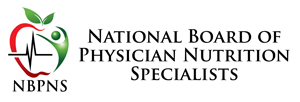Pediatric
Textbooks and chapters
Ford DM. Fluid, Electrolyte, and Acid-Base Disorders and Therapy, in Hay Jr. WW, Hayward AR, Levin MJ, Sondheimer JM (eds): Current Pediatric Diagnosis and Treatment , fifteenth edition, McGraw-Hill Inc., 2001, pp 1145-54. Chapter discussing the physiologic regulation of body fluids, electrolytes, and tonicity as well as the management approaches to fluid and electrolyte disorders.
Secker D, Pencharz MB: Nutritional therapy for Children on CAPD/CCPD: Theory and practice, in Fine RD, Alexander SR, Warady BA (Eds): CAPD/CCPD in Children , Boston, 1998, pp 567-603. Excellent text outlining the nutritional needs of and interventions for children requiring peritoneal dialysis.
Kuizon BD, Salusky IB. Nutritional Management of the Child with Renal Insufficiency, in Kopple JD, Massre SG (eds): Nutritional Management of Renal Disease . Williams and Wilkins, 1997. This chapter reviews methods for nutritional assessment and offers guidelines for providing maximal dietary support in children with chronic renal disease.
Watson AR, Coleman JE, Warady BA: When and how to use nasogastric and gastrostomy feeding for nutritional support in infants and children on CAPD/CCPD, in Fine RN, Alexander SR, Warady BA (eds): CAPD/CCPD in Children, Boston, 1998. pp 281-300. This section extols the benefits of enteral feeding and some of the unique issues that arise when pursuing this method of nutritional support for the pediatric peritoneal dialysis population.
Spinozzi NS. Chronic Renal Disease, in Queen PM and Lang CE (eds), Handbook of Pediatric Nutrition , 1993. Gaithersbrug, MD. Aspen Publishing, pp 471-482. Concise chapter reviewing the many aspects involved in the nutritional care of pediatric renal disease patients.
Review Articles
Peck LW, Stall C. Nutritional Management of the Pediatric Renal Patient. Topics in Clinical Nutrition , Dec. 1996. 12(1): 18-30. A thorough overview of the assessment and special management considerations necessary when caring for the pediatric renal patient.
Original Reports
Warady BA, Hebert D, Sullivan EK, Alexander SR, Tejani A. Renal transplantation, chronic dialysis, and chronic renal insufficiency in children and adolescents. The 1995 Annual Report of the North American Pediatric Renal Transplant Cooperative Study. Pediatric Nephrol 11:49-64, 1997.
Coleman JE, Norman L, Watson AR. Provision of dietetic care in children on chronic peritoneal dialysis. Journal of Renal Nutrition 1999, 9: 145-148.
Spinozzi NS, Nelson P. Nutrition support in the newborn intensive care unit. Journal of Renal Nutrition 1996, 6: 188-197.
Zadik Z, Frishberg Y, Drukker A, Blachar Y, Lotan D, Levi S, Reifen R. Excessive dietary protein and suboptimal caloric intake have a negative effect on the growth of children with chronic renal disease before and during growth hormone therapy. Metabolism 1998, 47: 264-268. The first report documenting the effect of nutrition/diet adequacy on the response to growth hormone therapy in chronic renal failure patients.
Quan A, Baum M. Protein losses in children on continuous cyclic peritoneal dialysis. Pediatric Nephrology 1996, 10: 728-731.
Warady BA, Kriley M, Alon U, Hellerstein S. Vitamin status of infants receiving long-term peritoneal dialysis. Pediatric Nephrology 1994, 8: 354-356.
Coleman JE, Watson AR, Rance CH, Moore E. Gastrostomy buttons for nutritional support on chronic dialysis. Nephrol Dial Transplant 1998, 13: 2041-46. Prospective review of the use of gastrostomy feeding tubes for pediatric patients requiring chronic dialysis. The authors conclude that the gastrostomy tube is a valuable route for nutrition support in this population with few complications.
Fine RN, Kohaut EC, Brown D, Perlman AJ. Growth after recombinant human growth hormone treatment in children with chronic renal failure: report of a multi-center randomized double-blind placebo-controlled study. Genentech Cooperative Study Group. Journal of Pediatrics 1994, 124: 374-382. This is a study of 125 pre-pubertal growth retarded children with chronic renal failure randomized to receive either recombinant human growth hormone or placebo for two years. The growth hormone group showed significantly higher growth rates over both years (p < 0.00005).
Web Sites
- National Kidney Foundation
- RENALNET: Kidney Information Clearinghouse
- The Nephron Information Center
- National Institute of Diabetes and Digestive and Kidney Diseases
Clinical algorithms, practice standards, position papers
Nelson P, Stover J. Nutrition recommendations for infants, children, and adolescents with end-stage renal disease, in Gillit D, Stover J (eds): A Clinical Guide to Nutrition Care in End-Stage Renal Disease , Chicago, 1994, pp 79-97.
NKF-DOQI Clinical Practice Guidelines for Nutrition in Chronic Renal Failure, Pediatric Guidelines. American Journal of Kidney Diseases June 2000, 35(6) suppl 2: 5105-5136.
